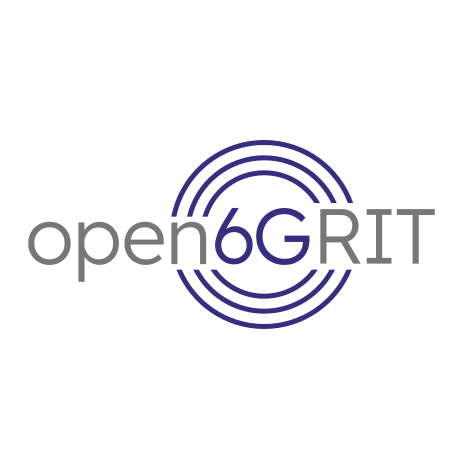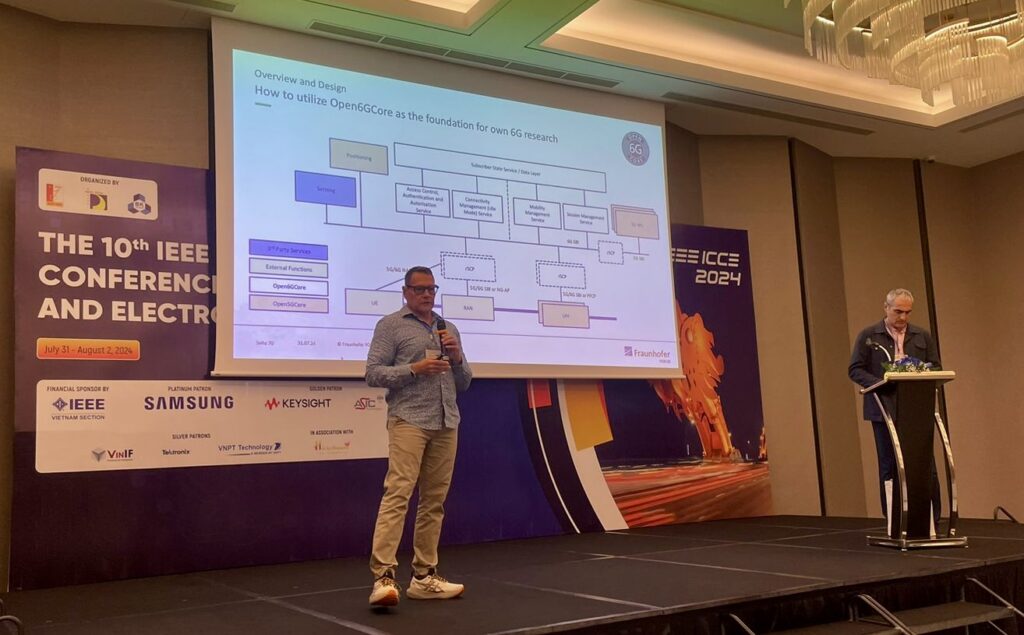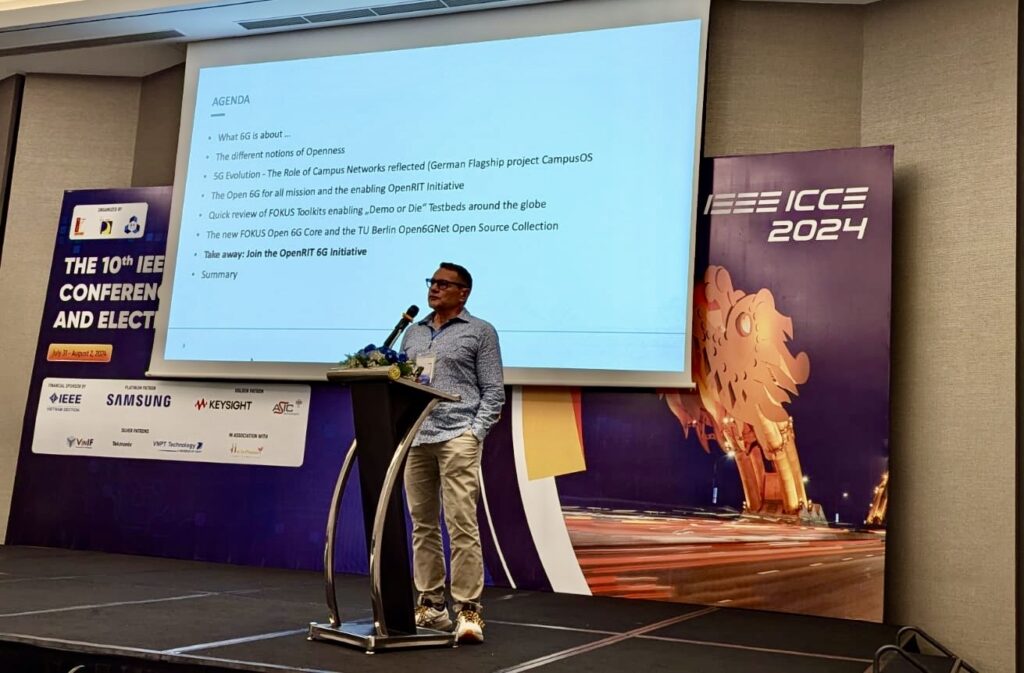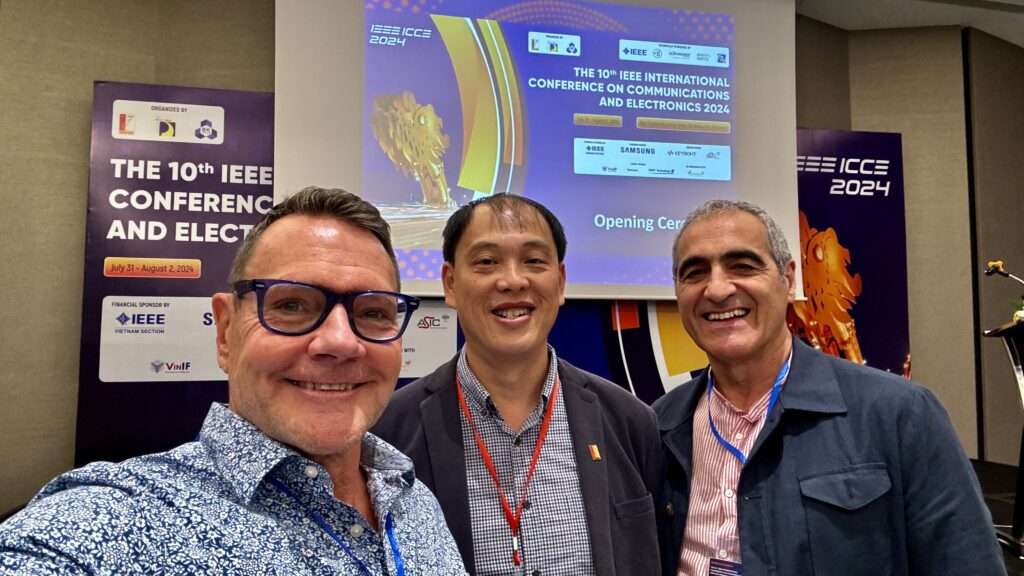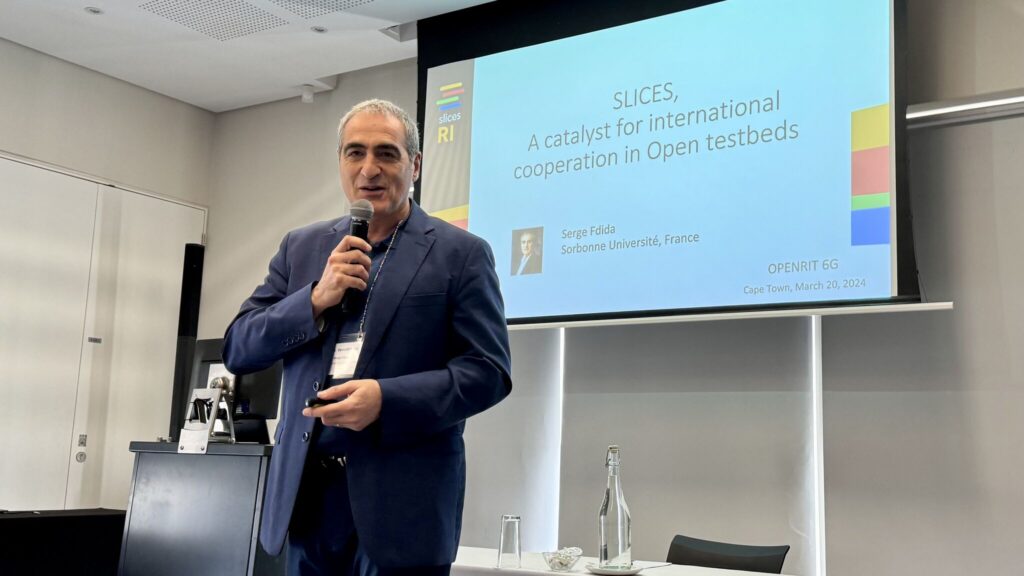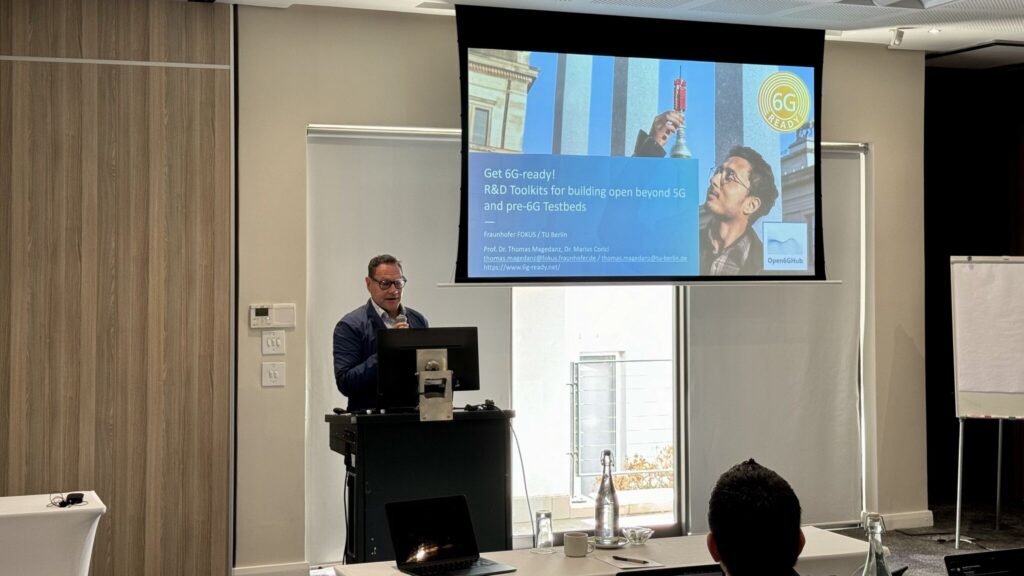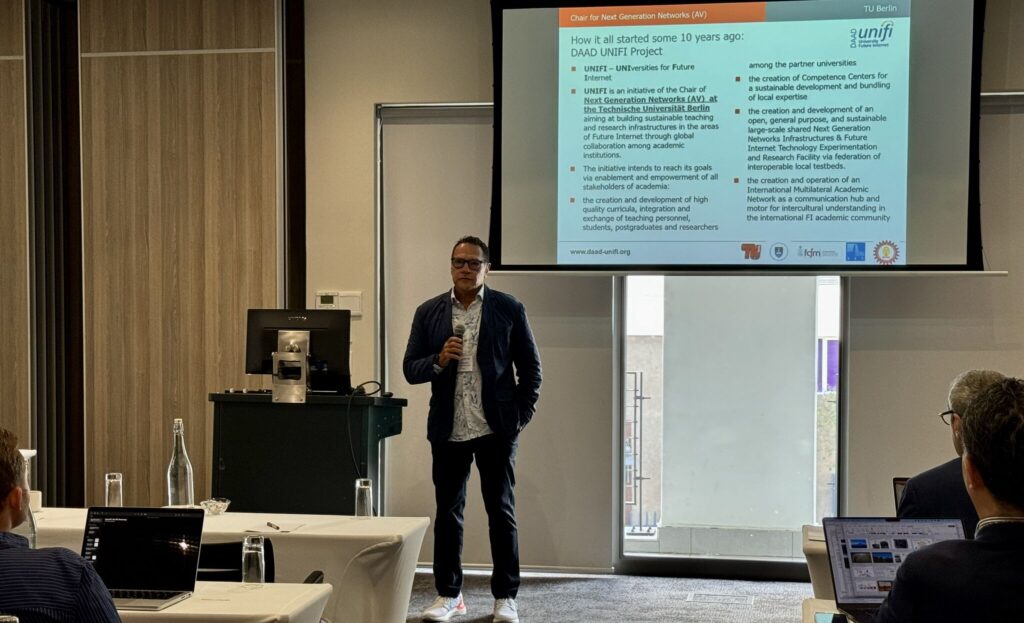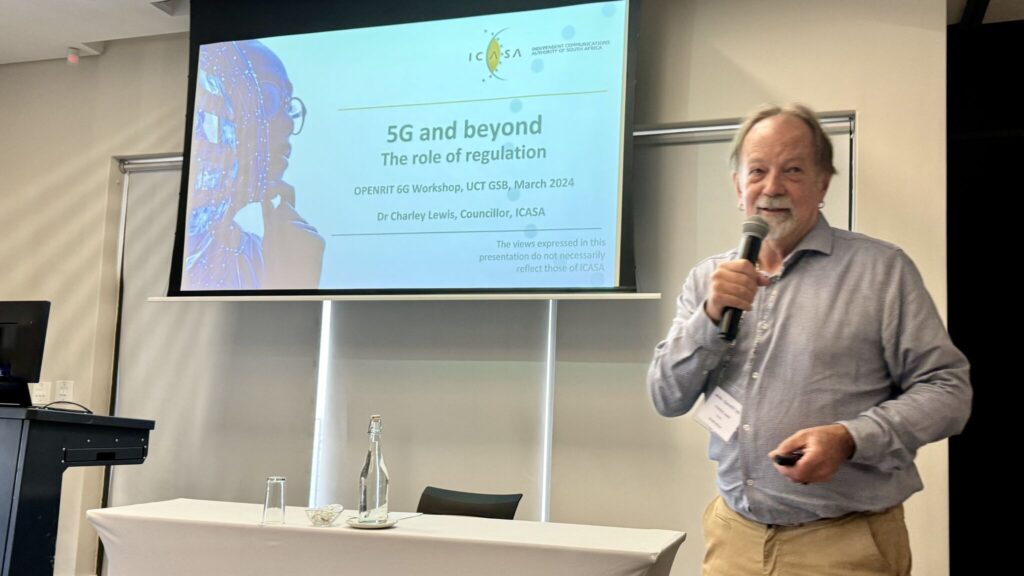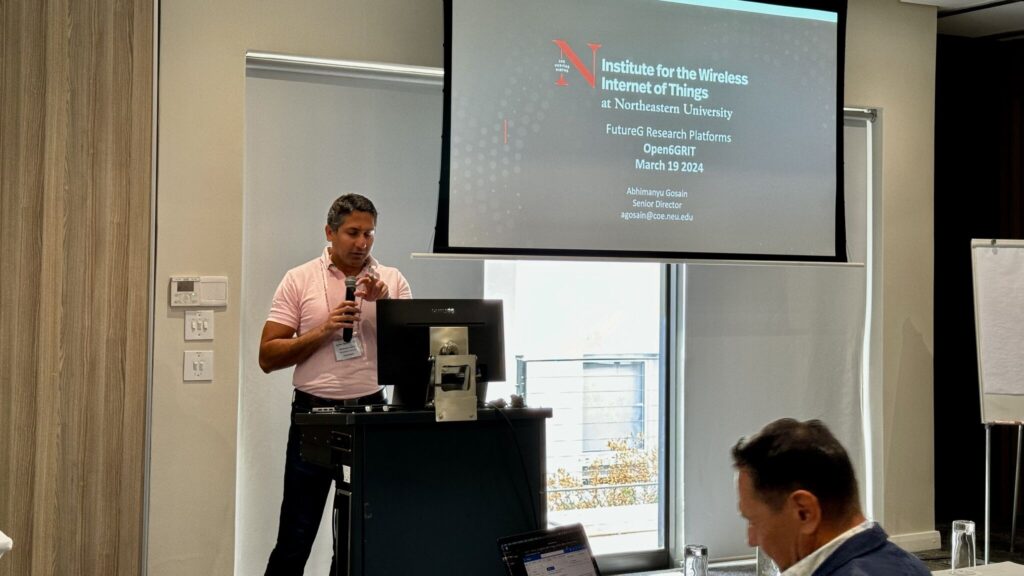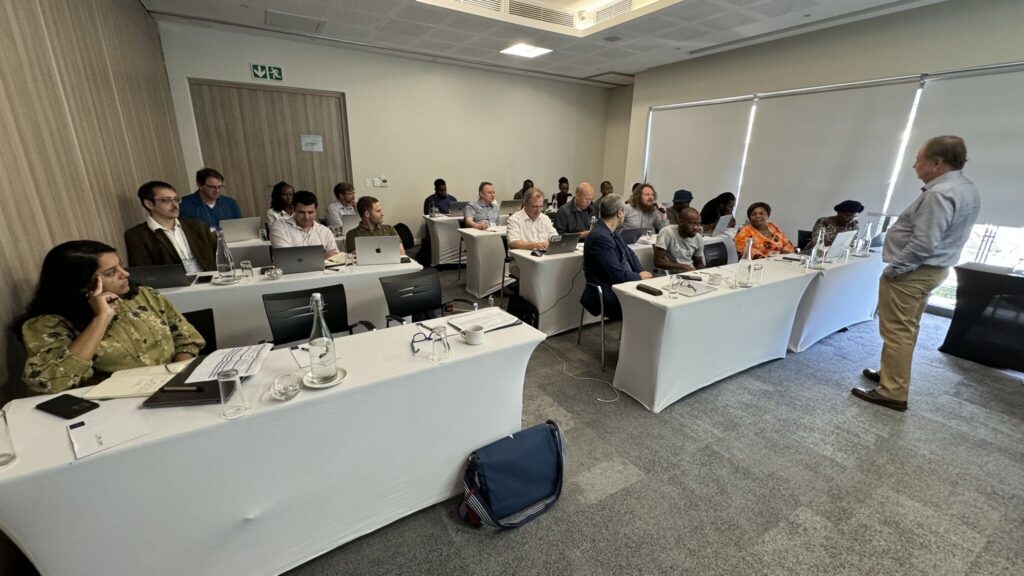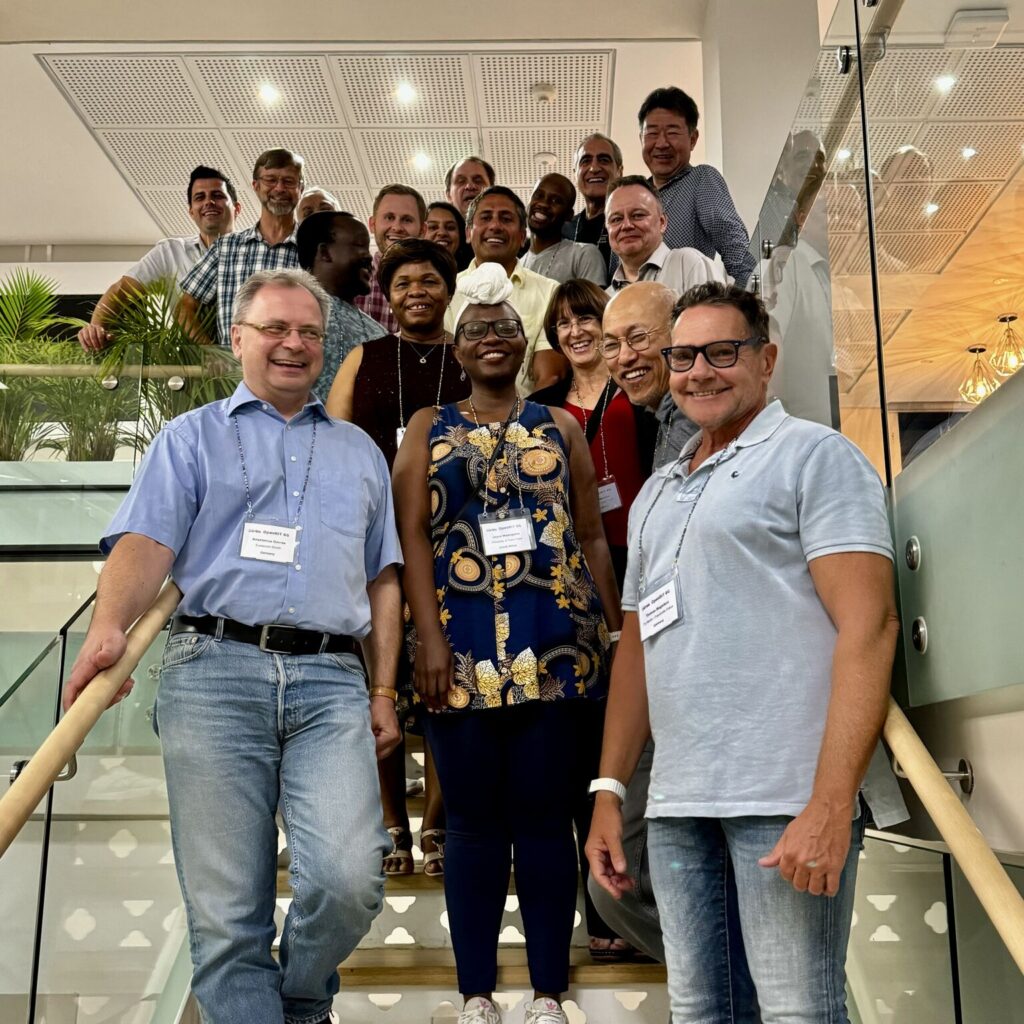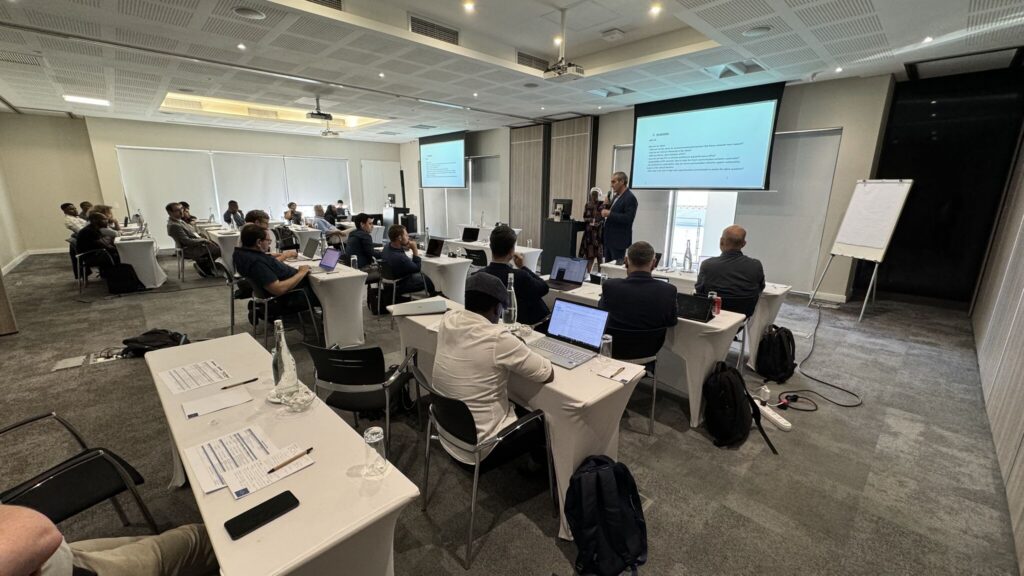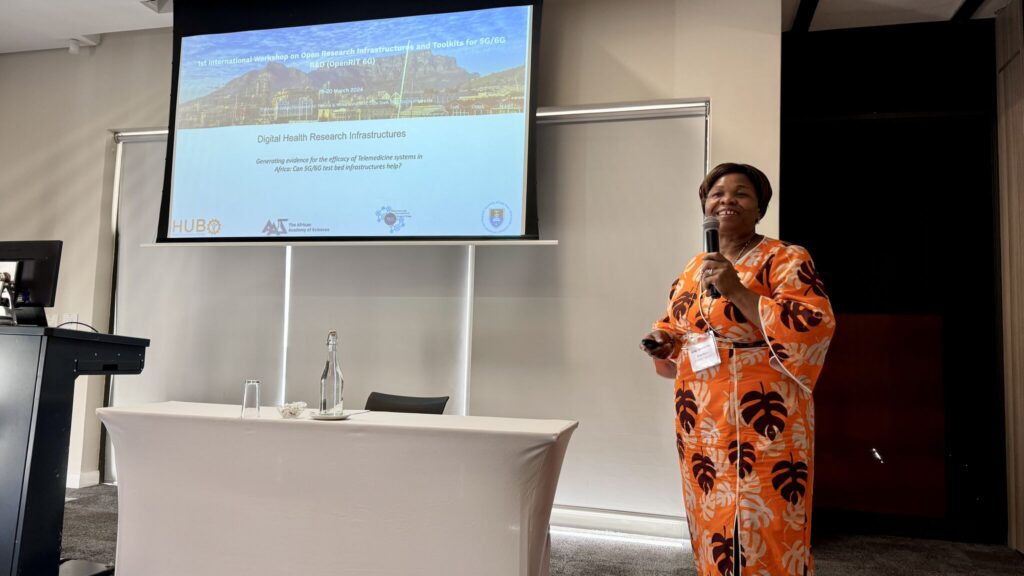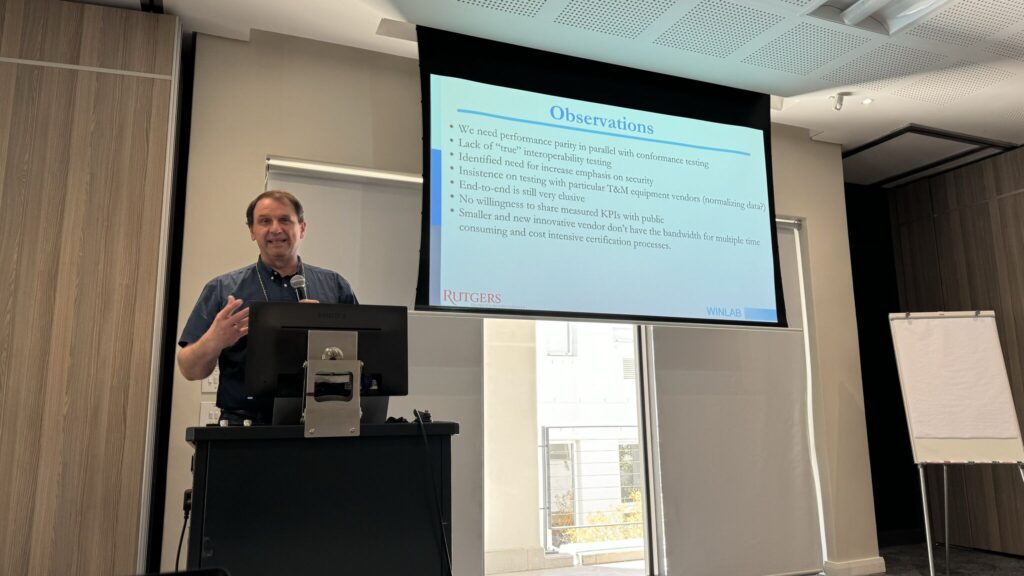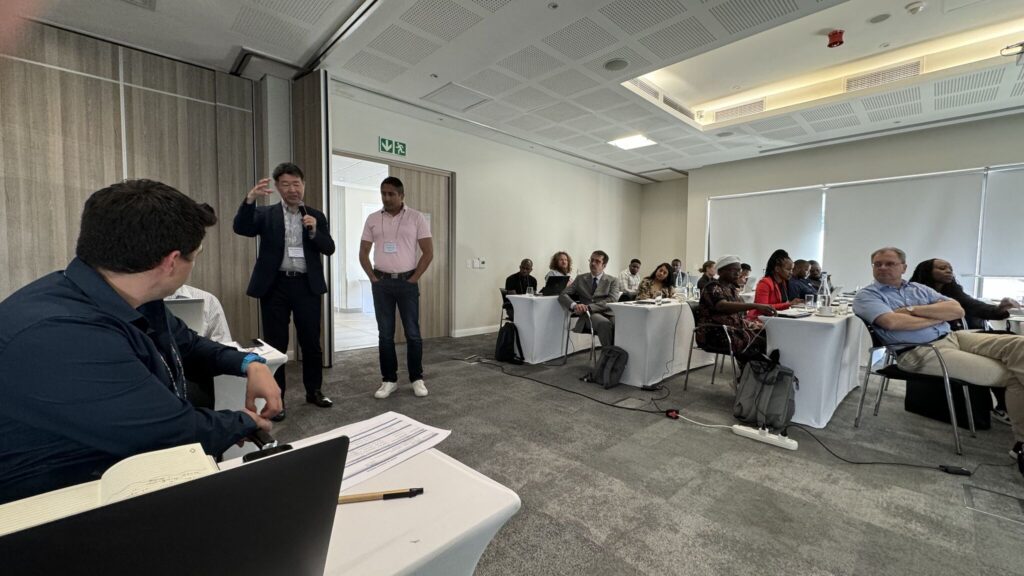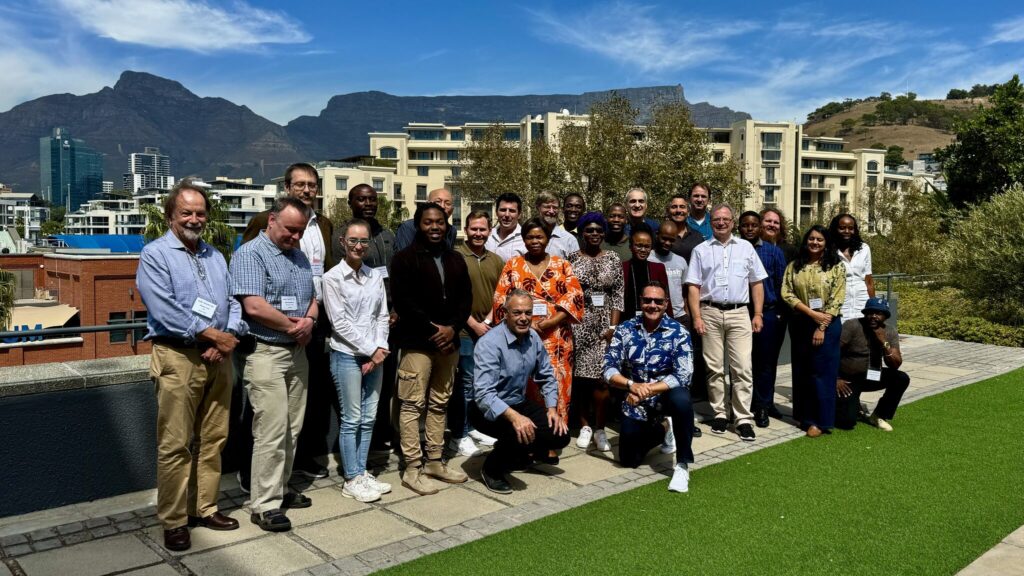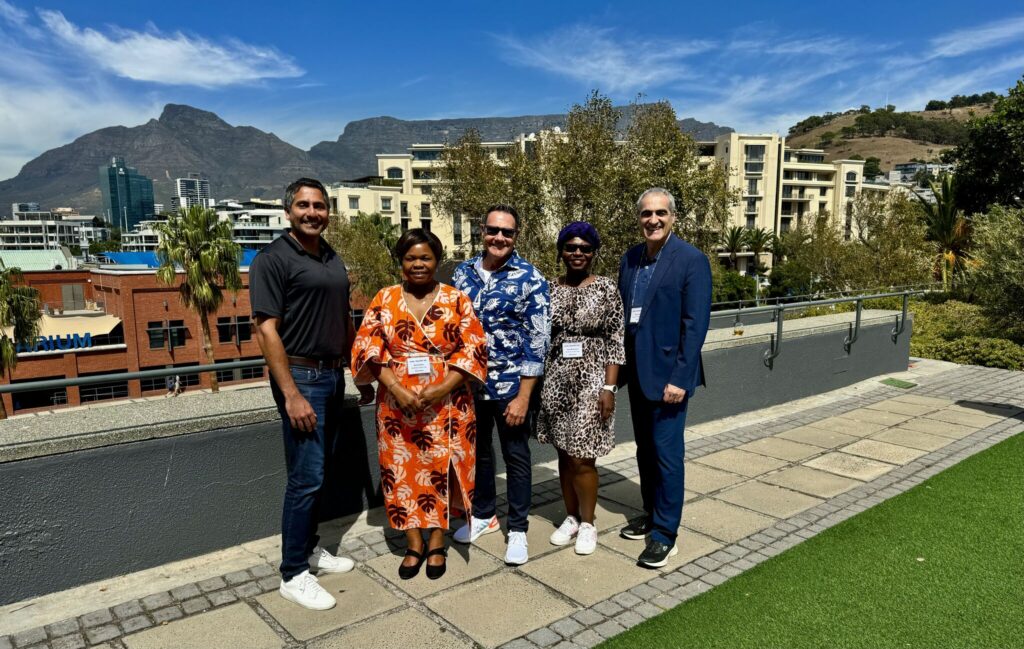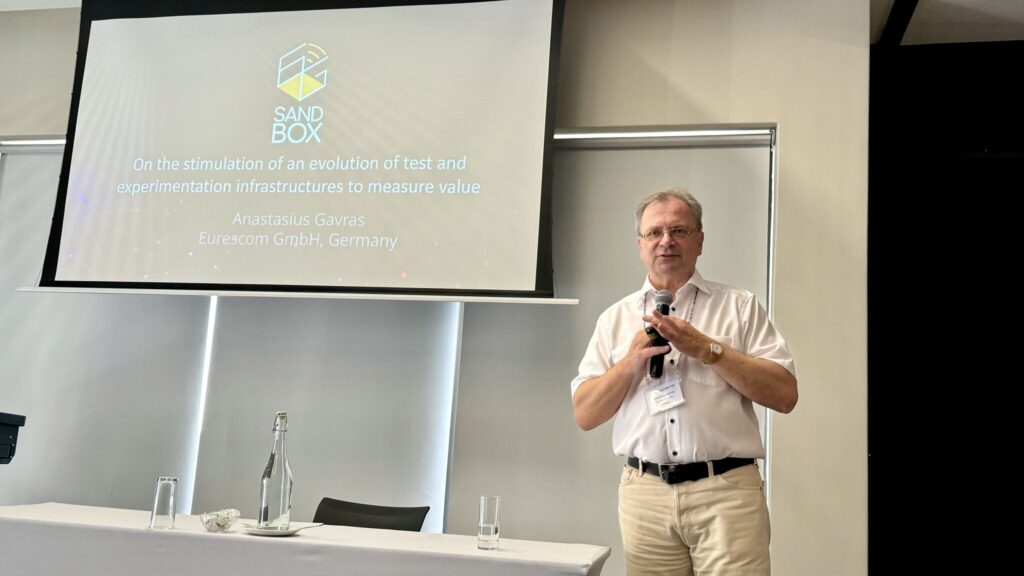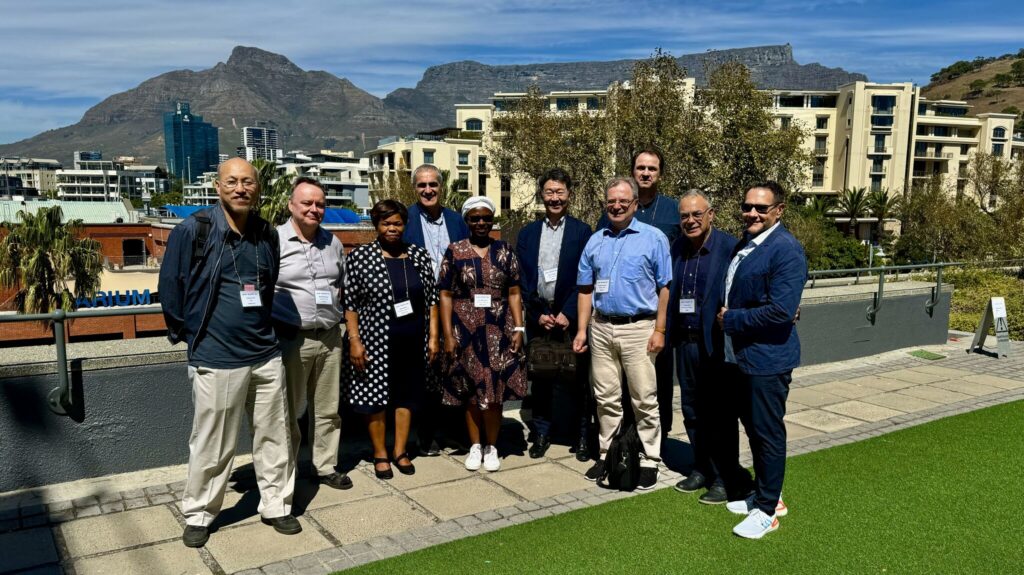6G Berlin Conference
Open 6G for all – Towards Open 6G Research Infrastructures and Toolkits (Open6GRIT) International Panel
Berlin 6G Conference 2024 – The Annual Networking Event of the German 6G Program
Organized by the 6G Platform Germany, Berlin Congress Center (bcc),
03 July, 2024, https://www.6g-platform.com/berlin-6g-conference/
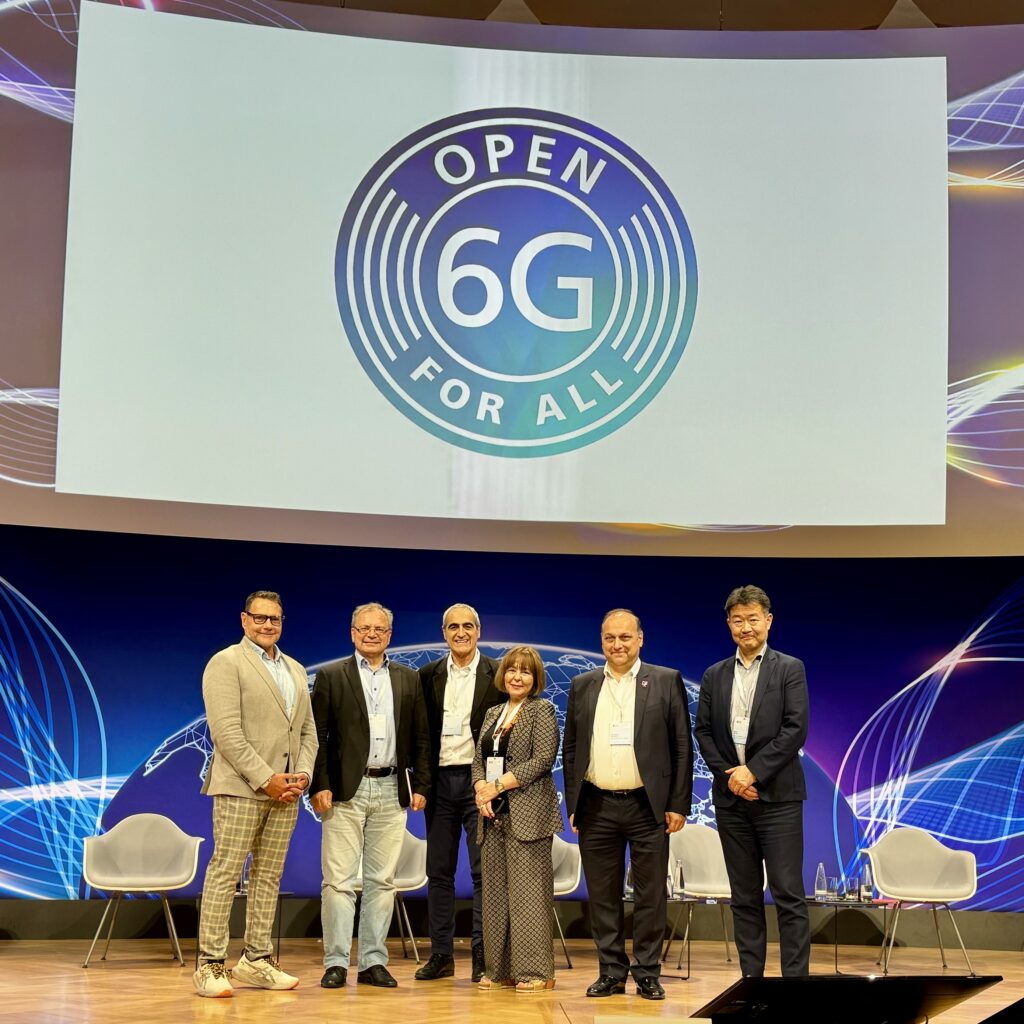
Summary:
Lots of experiences have been gained in the past that open test and prototyping infrastructures are of key importance for the early prototyping of next generation mobile network technologies and applications. And with the increasing complexity of technologies due to disaggregation of network functions and components while addressing an increasing need for specific vertical application domain adaptations this is becoming even more important.
Understanding the increasing desire for local eco system developments in different regions of the world and the growing diversity in value chains and business models, the early provision of open research infrastructures and related toolkits becomes of high relevance for accomplishing the vision of an “Open 6G for all”, enabling both academia and industry to get started for the international standardization.
In this panel we bring together distinguished domain experts to discuss the subject.
Chair: Thomas Magedanz, Fraunhofer FOKUS / TU Berlin
Panelists:
Aki Nakao, Tokyo University, Japan
Kostas Chalkiotis, Deutsche Telekom, Germany
Maria, Guta, European Space Agency, The Netherlands
Serge Fdida, Sorbonne University, France
Anita Dohler, NGMN Alliance
Anastasius Gavras, EURESCOM, Germany
Tony Quek, SUDT, Singapore (remote)
Abhimnayu Gosain, Northeast University, USA (remote)
FUSECO FORUM
Forward to 6G! Understanding 5G Evolution Driven by Open Campus Networks, 6G RAN, Core Network Evolution, Non-terrestrial Networks and Data-/AI-based Networking
7-8 Nov, 2024 – Fraunhofer FOKUS, Berlin, https://www.fokus.fraunhofer.de/ngni/events/fuseco-forum_2024
IEEE ICC Panel
Towards an Open 6G for the inclusion of all – Understanding the role of open 6G research infrastructures and toolkits
IEEE International Conference on Communications – Scaling the Peaks of Global Communications
June 12, 2024 // Denver, CO, USA, https://icc2024.ieee-icc.org/
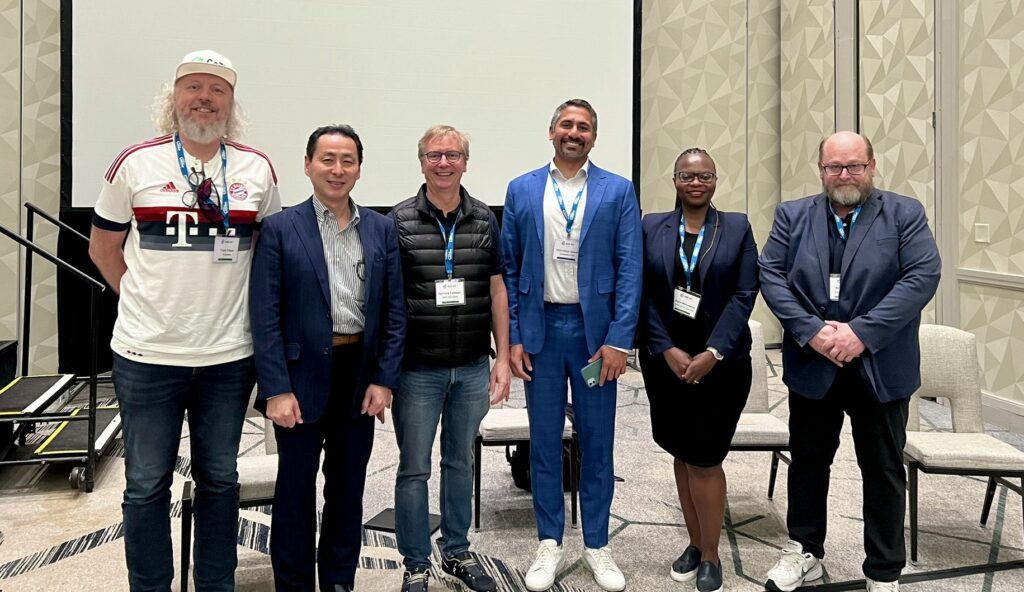
Download the presentation below:
Summary:
The expectations on 6G are ambiguous as it should extend 5G into several technical and societal dimensions. Particularly, when looking at the targeted UN SDGs, 6G is expected to become the network for all, connecting different vertical industries, as well as the unconnected around the globe. While global research is still debating on evolutionary vs. revolutionary architectural approaches, many operators have made clear, that 6G has to be backward compatible to allow a smooth network transition and to avoid massive investments into a new infrastructure without clearly identifiable killer applications.
Understanding the current lessons learned from global 5G rollout challenges, as well as the increasing notion of private networks, opening and disaggregation of radio and core network architectures, and emerging open source implementations of 5G technologies driving innovations one could assume, that 6G might be strongly affected by this.
In this international panel stretching four continents bringing together both relevant industry and academia speakers, we want to discuss the role, plannings and state of play for building up open 6G research infrastructures and toolkits around the globe to allow both industry and academia to get an early practical understanding on emerging 6G technologies and to actively contribute to 6G research, standardization and developments from different national perspectives. In particular, we want to discuss how university students around the globe, including those from developing and emerging countries, could be included in this “practical education”, to be able to design and build up their own national public and/or private 5G/6G networks in the future.
We also want to discuss best practices and current road blocks and show stoppers identified from the international panelists.
This panel is supported by the 6G Platform Germany (https://www.6g-platform.com/) and the German Open6GHub flagship project (https://www.open6ghub.de/en/).
Moderator: Prof. Dr. Gerhard P. Fettweis, TU Dresden / 6G Platform
Final Panelists:
- Takehiro Nakamura, NTT DOCOMO, Japan
- Abhimanyu Gosain, Northeastern University, USA
- Prof. Dr. Joyce Mwangama, University of Cape Town, South Africa
- Prof. Dr. Ari Poutto, University of Oulu, Finland
- Frank Fitzek, TU Dresden, Germany
More information available at: https://icc2024.ieee-icc.org/program/industry-panels#ip10
IFIP Keynote
Understanding the Potential of Open Campus Networks for driving an Open 6G – Lessons learned from the German Flagship Project CampusOS – Keynote T. Magedanz
IFIP/IEEE Networking 2024
3-6 June, Thessaloniki, Greece, https://networking.ifip.org/2024/
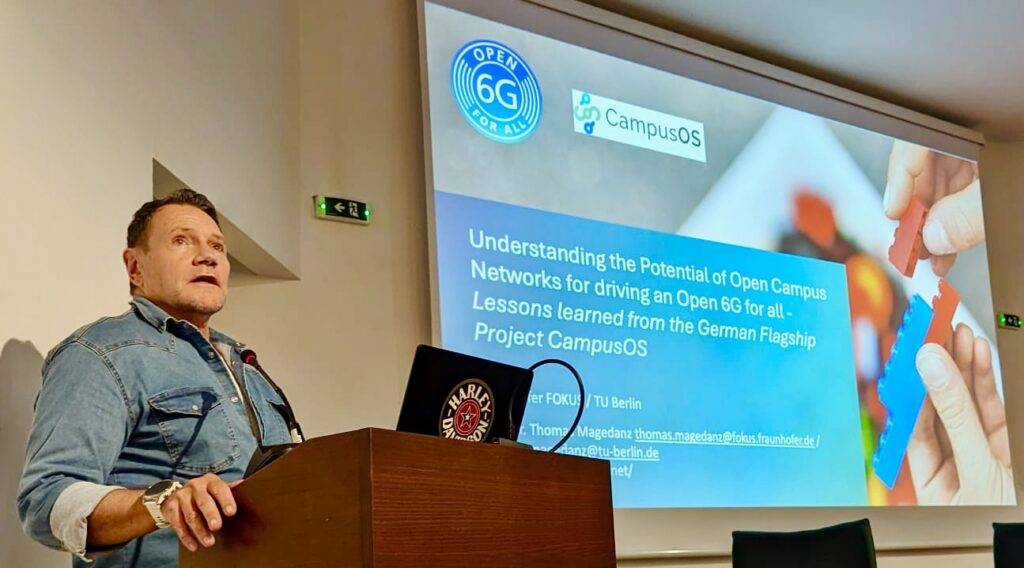
Summary:
This keynote is addressing the role of emerging Open 5G Campus Networks and their role in the evolution towards 6G.
There is no doubt, that in many countries customized Non-public / Private / Campus Networks are currently being considered to be a solution to leapfrog commercial public 5G deployments in order to meet specific requirements of enterprises in different vertical sectors in their digital transformation. We can witness that thanks to different business and operation models, in which operators, third parties, or the enterprises themselves are planning, deploying and operating these networks. What is still needed is a catalogue of open modular components and useful blueprints illustrating how to combine adequate components for realizing efficiently different use cases. The German BMWK Flagship Project Campus-OS and its associated “satellite projects” are addressing this challenge to stimulate the creation of a new European ecosystem for building self-sovereign open, modular campus networks for different industry sectors (https://campus-os.io/) since the beginning of 2023 and have reached by now good progress.
In this keynote Prof. Magedanz is providing an overview of the project and its achievements in regard to business and operation model options, component catalogue and available blue prints.
In addition, the keynote will also outline the relevance of this research work in regard to its relevance on current 6G research, as a lot of the internationally targeted 6G innovation areas are already being addressed in the campus network evolution, such as the research on higher spectrum RAN, satellite integration, dynamic spectrum usage, new positioning and sensing capabilities, network automation and deep integration of AI/ML, open network architectures and new eco system developments, etc.
COMMUNICASIA 2024
AI-Driven Networking with 6G: Envisioning the Next Frontier
Panel at COMMUNICASIA 2024, SINGAPORE EXPO
29 MAY 2024, https://asiatechxsg.com/communicasia/
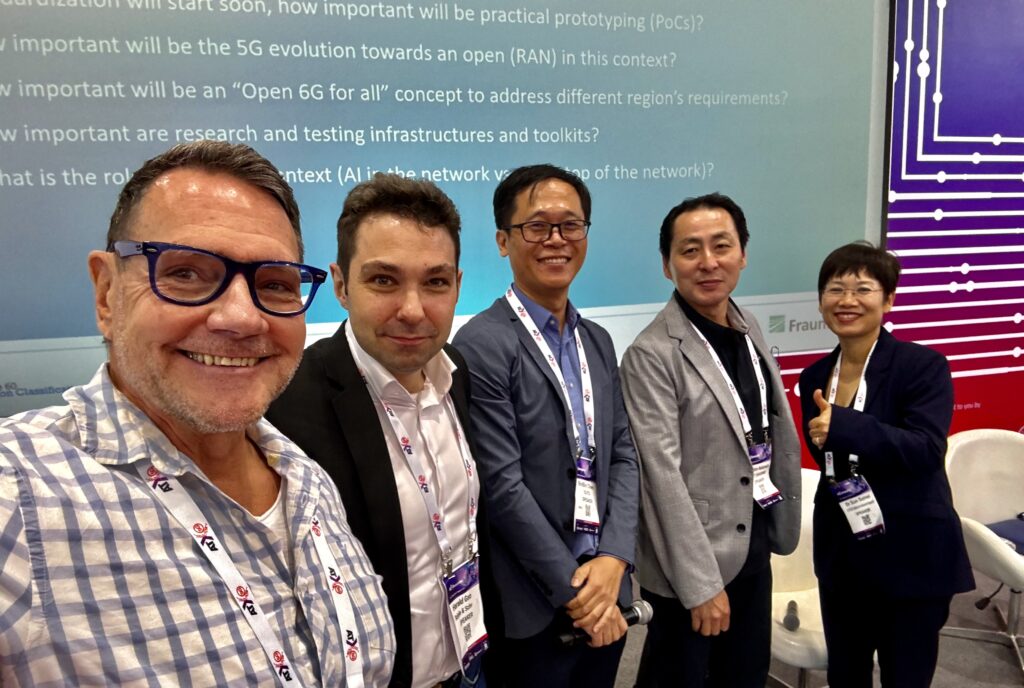
In this panel moderated by Prof. Magedanz we international experts, namely
Takehiro Nakamura, NTT Docomo, Japan
Harald Gsoedl, Rohde & Schwartz, Germany
Chen Binbin, SUTD, Singapore
Sun Sumei, A*STAR, Singapore
discussed about
- What are today after 4 years research the main drivers / use cases / technical innovation areas for 6G?
- Standardization will start soon, how important will be practical prototyping (PoCs)?
- How important will be the 5G evolution towards an open (RAN) in this context?
- How important will be an “Open 6G for all” concept to address different region’s requirements?
- How important are research and testing infrastructures and toolkits?
- What is the role of AI in this context (AI in the network vs. AI on top of the network)?
More information is available at: https://asiatechxsg.com/communicasia/communicasia-agenda/
OpenRIT Workshop
The Open Research Infrastructures and Toolkits for 5G/6G R&D (OpenRIT 6G) Workshop was hosted from 19-20 March 2024 in Cape Town, South Africa.
Click here to download the Workshop Flyer
Click here to access the Workshop Presentations
Click here to download the Abstracts
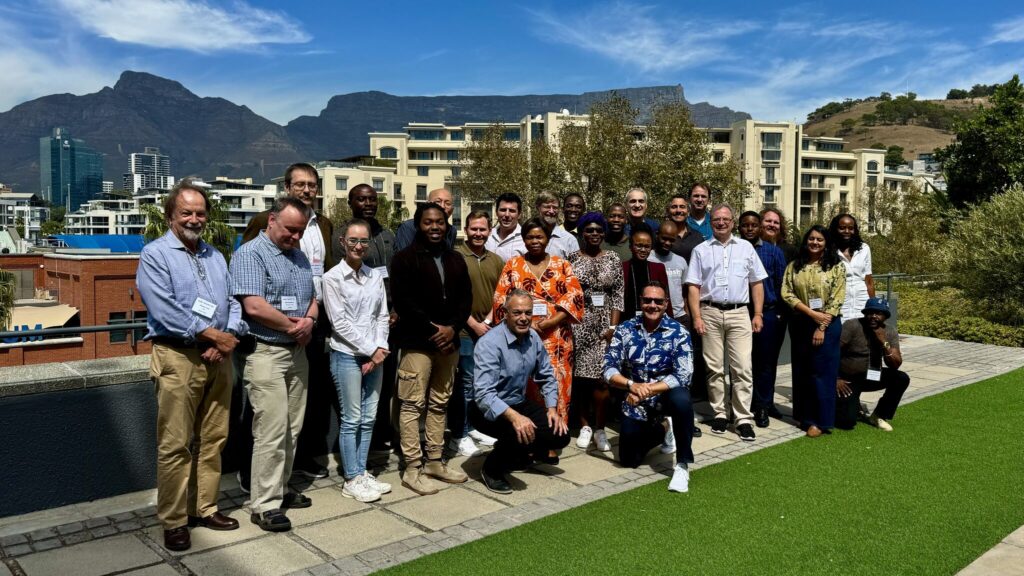
Summary:
The field of telecommunications is undergoing a significant transformation due to the digital revolution impacting various industries. This change is characterized by increased complexity in systems, diverse use cases, evolving network architectures, shifting business
models, and the rise of open ecosystems. From a technical standpoint, notable developments include the growing influence of network virtualization, modular network design, software-driven networking, and the integration of artificial intelligence. These advancements are particularly evident in the progression of mobile networks towards 5G Advanced and 6G. Additionally, the trend towards private mobile networks tailored for specific industries, coupled with flexible network deployment and operational models, is spurring innovation in networking. These advancements place substantial demands on research and development infrastructure globally, particularly for various 6G
research initiatives. International collaboration is becoming increasingly crucial for the early harmonization of ideas, concepts, architectures, and related protocols and interfaces. This collaboration is essential for the efficient standardization of mobile networks for
5G Advanced and 6G. Moreover, the emphasis on open, vendor-neutral technology and application testbeds, along with supporting software toolkits, is key to
education and skill development. This focus is evident in different regional research centers, which aim to foster local ecosystem development. There is also a growing interest in small-scale, portable testbeds that allow students to engage with the latest networking
technologies in their own environments. This approach is particularly important for developing countries to align with the 6G vision of creating a network for everyone and to support the United Nations Sustainable Development Goals (UN SDGs). This exclusive, invitation-only workshop aimed to unite leading researchers to synchronize their visions and roadmaps for their 5G/6G labs and to accelerate international cooperation in key areas of mutual interest. To facilitate this, each speaker submitted five points of interest for discussion in the afternoon sessions. From these submissions, the top six topics were selected for in-depth discussion.
